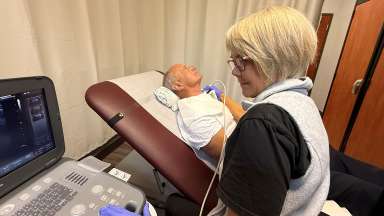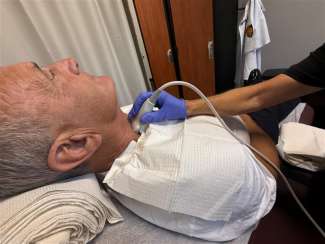The Raleigh Fire Department is launching a new initiative to promote its firefighters’ health and well-being.
RFD firefighters now have access to a free, voluntary health screening. It’s designed to catch potential issues early, when treatment is most effective. From cardiovascular risks to organ health, a screening can reveal key information.
“This is about being proactive,” says Chief Alexandra Gutierrez, who heads the department’s Health and Safety Compliance Division. “We want to support our members in living long, healthy lives, on and off the job.”
This is one of the most comprehensive firefighter health screening programs in North Carolina. The goal is to provide preventative screenings for up to 200 members each year. The screenings are done at Fire Station 14, which has a room dedicated to them.

